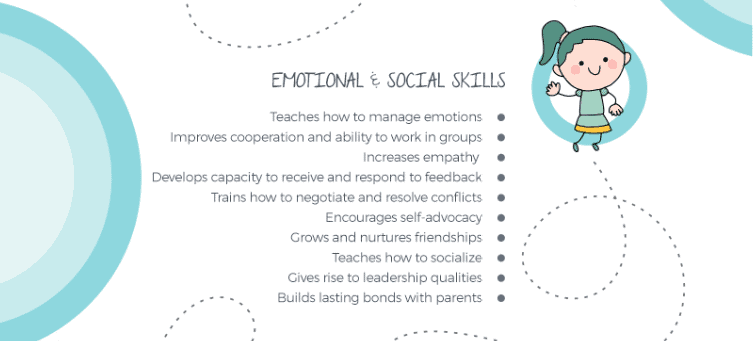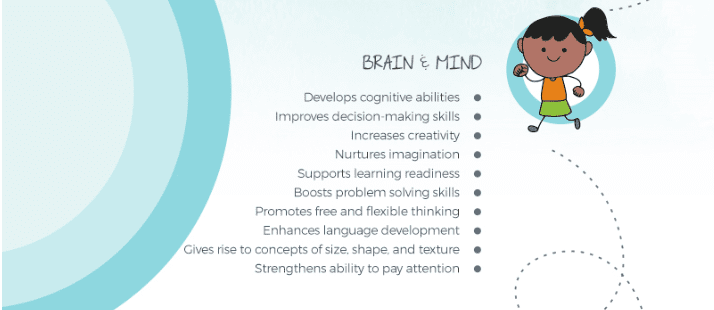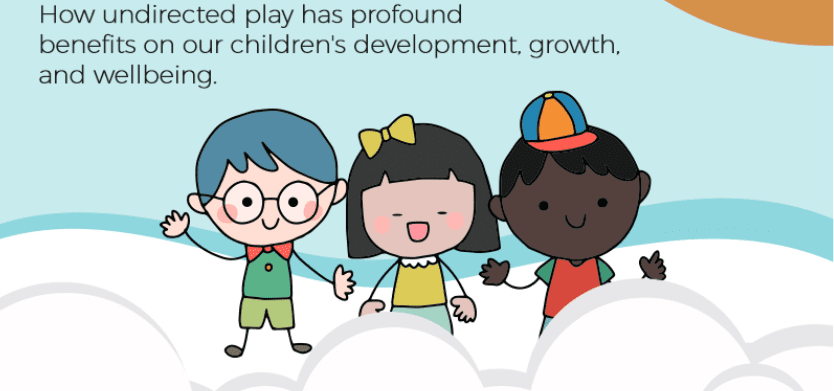Unstructured play, or free play, is an often overlooked part of a child’s development. This essential form of play provides children with the opportunity to grow through their creativity and imagination, giving them the ability to gain problem-solving minds, and acquire social skills. Allowing children to express themselves with other children in various environments like the playgroup can provide them with the necessary (creative) skills they will need as they grow.
Unstructured play is now becoming a thing of the past. We are in a new era where parents are pressured to ensure that their children are the best that they can be. They now get their children enrolled in many activities like sports, academic classes, art, and other organized extracurricular activities. Unfortunately, this has led to a dramatic decline in the amount of free-time for children. While we desire the best academic performance for our children, we must also keep a healthy balance between work-time and free-time. WeTheParents have compiled an extensive list of 43 ways that children thrive on free play, showing us the importance of maintaining this healthy balance.
Listed below are some of the reasons why it is important to engage children in free play:
1. PROMOTES SOCIAL SKILLS

Free play teaches children the importance of teamwork while encouraging the growth of social skills. While children are at play in a group, they learn to listen to each other, take turns, and share, encouraging them to work as a team. During unstructured play, children create their own world, free of outside forces, which teaches them how to compromise and make decisions together.
Social skills can lead to a positive outlook and build self-confidence. It can also teach children the ability to empathize. Through social interaction, they can view and understand the world through another child’s eyes.
2. TEACHES PROBLEM SOLVING SKILLS

Encouraging unstructured play is vital, as children during this time learn how to solve problems on their own without the intervention of adults. While it is important that children are supervised, it is even more important that they are allowed to have space and leeway to try and figured out the solution to the problem on their own first. Children who learn to solve problems on their own will have an easier time facing those inevitable future conflicts.
3. BUILDS IMAGINATION AND CREATIVITY

Free play allows children the time to let their imagination run free without guidelines and rules. It is during this time that they are allowed to think outside of the box and explore ideas. Building the imagination and learning the art of creativity is an important step in the learning process as a child grows. Without the ability to cultivate imagination, the world would be a rather dull and unimpressive place. Using their imagination also allows them to act out certain aspects of life that they normally have no control over. Playing out the roles of adult life with other children provides them a way to conquer fears. This type of play can also teach them empathy by enabling them to ‘put on someone Else’s shoes’.
A survey conducted by the National Association of Elementary School Principals has shown that there has been a decrease in allowed recess periods for kindergarten classrooms since 1989. This reduction of unstructured play can have many repercussions on a child’s overall development. It is vital that we find a way to create a healthy balance between structured and unstructured time for our children so that they can grow to be healthy and happy adults.
If perhaps you have a child that you can’t get to engage in outdoor play, here are 33 useful tips on how to get such a kid outside.
